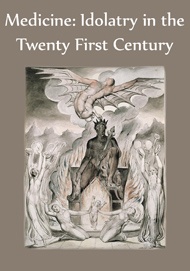
Listen to my prayer, O God, do not ignore my plea; hear me and answer me. My thoughts trouble me and I am distraught at the voice of the enemy, at the stares of the wicked; for they bring down suffering upon me and revile me in their anger.
My heart is in anguish within me; the terrors of death assail me. Fear and trembling have beset me; horror has overwhelmed me. I said, “Oh, that I had the wings of a dove! I would fly away and be at rest—I would flee far away and stay in the desert; I would hurry to my place of shelter, far from the tempest and storm.” (Psalm 55:1-8)
One of the realities of life that our current physical science based medical system has had to admit in recent years is that there are non-physical causes to poor health and disease. One of the few non-physical causes that is widely accepted as a cause of disease is “stress.” It is quite well known today that the presence of stress in one’s life, and how one deals with that stress, has a direct impact on your health.
Unfortunately, the solutions the medical system most often prescribes today for mental and emotional health are expensive drugs with serious side effects. So many people are “stressed out” that anti-depressant drugs have become a growing and prosperous business for pharmaceutical companies.
David, the second Jewish king during the monarchy period, was a man who faced tremendous stress and pressure in his life. Few of us reading this today will have faced the kind of stress and anxiety David experienced during a period of probably more than ten years of his life where he was constantly on the run from his enemies who were trying to kill him. In fact, as he records in this Psalm, it wasn’t just his enemies that caused problems, but also his “friends” and fellow believers:
If an enemy were insulting me, I could endure it; if a foe were raising himself against me, I could hide from him. But it is you, a man like myself, my companion, my close friend, with whom I once enjoyed sweet fellowship as we walked with the throng at the house of God. (Psalm 55:12-14)
Notice the signs of stress as recorded in his words in the passage above: “My thoughts trouble me and I am distraught… My heart is in anguish within me; the terrors of death assail me. Fear and trembling have beset me; horror has overwhelmed me.”
If David had confessed these kinds of feelings to a physician or psychiatrist today, he would have been prescribed anti-depressant drugs immediately to try and stabilize his emotional condition. He had all the signs of “mental disease” including the temptation to try and escape from all of his problems by running away from them: “Oh, that I had the wings of a dove! I would fly away and be at rest—I would flee far away and stay in the desert; I would hurry to my place of shelter, far from the tempest and storm.”
He was unstable, neurotic, and desperate. He would have probably been labeled as “insane” today and been committed to a mental health facility.
A Biblical Approach to Mental Health
But David did not seek out physicians in his anxiety. He appealed to God for help, trusting that God would hear his prayers and change his condition. If you read the Psalms of David which reveal his emotional and mental condition during times of extreme stress, you will notice that David consistently took two approaches to dealing with anxiety and stress, both of which involved prayer and a relationship to his Creator.
1. David prayed to God asking him to intervene in the circumstances of his life that were causing the stress:
Confuse the wicked, O Lord, confound their speech, for I see violence and strife in the city… Let death take my enemies by surprise; let them go down alive to the grave, for evil finds lodging among them. But I call to God, and the LORD saves me. Evening, morning and noon I cry out in distress, and he hears my voice. He ransoms me unharmed from the battle waged against me, even though many oppose me. God, who is enthroned forever, will hear them and afflict them— men who never change their ways and have no fear of God. (Psalm 55:9-19)
As strong and powerful as David was, in many circumstances he was powerless against his enemies and the rulers of his day. But he knew first hand that God was not powerless, and so he appealed to God to intervene.
2. David cast all of his worries and cares unto God, trusting in him to take care of them all, and to sustain him with strength to endure everything.
Cast your cares on the LORD and he will sustain you; he will never let the righteous fall. (Psalm 55:22)
These two methods of using prayer to deal with stress are even more available to us today, in the age of the New Covenant which was instituted by the death and resurrection of Jesus Christ. The believers in the early assemblies were often arrested and persecuted, suffering tremendous stress. The same two principles were used to deal with anxiety and stress.
Principle 1. Pray for God to intervene in the stressful situation.
Here is an example of what was prayed after the believers were arrested and released for preaching about Jesus and miraculously healing a man (they didn’t follow the prescribed protocol for healthcare of their day!):
On their release, Peter and John went back to their own people and reported all that the chief priests and elders had said to them. When they heard this, they raised their voices together in prayer to God. “Sovereign Lord,” they said, “you made the heaven and the earth and the sea, and everything in them. You spoke by the Holy Spirit through the mouth of your servant, our father David: “‘Why do the nations rage and the peoples plot in vain? The kings of the earth take their stand and the rulers gather together against the Lord and against his Anointed One.’ Indeed Herod and Pontius Pilate met together with the Gentiles and the people of Israel in this city to conspire against your holy servant Jesus, whom you anointed. They did what your power and will had decided beforehand should happen. Now, Lord, consider their threats and enable your servants to speak your word with great boldness. Stretch out your hand to heal and perform miraculous signs and wonders through the name of your holy servant Jesus.”
After they prayed, the place where they were meeting was shaken. And they were all filled with the Holy Spirit and spoke the word of God boldly. (Act 4:23-31)
Principle 2. Cast all our anxieties and care on God, trusting him to take care of all our problems and to sustain us with his strength:
Do not be anxious about anything, but in everything, by prayer and petition, with thanksgiving, present your requests to God. And the peace of God, which transcends all understanding, will guard your hearts and your minds in Christ Jesus. (Philippians 4:6-7 – prescription for mental health)
Cast all your anxiety on him because he cares for you. Be self-controlled and alert. Your enemy the devil prowls around like a roaring lion looking for someone to devour. Resist him, standing firm in the faith, because you know that your brothers throughout the world are undergoing the same kind of sufferings. And the God of all grace, who called you to his eternal glory in Christ, after you have suffered a little while, will himself restore you and make you strong, firm and steadfast. To him be the power for ever and ever. Amen. (1 Peter 5:7-11)
These are the two biblical principles of dealing with anxiety and stress, and they are the guiding principles for mental health. No drugs are needed. It requires a relationship with God through Jesus, however, and not just an intellectual knowledge about him. So the first step is the spiritual rebirth.
How do you deal with anxiety and stress? The two principles written about here are time-tested principles that have been used for thousands of years, long before modern-day pharmaceuticals came into the market place with our current medical system. They are backed by a guarantee from the Creator himself, the one who formed and fashioned you while still in your mother’s womb. Best of all, they are free!
He himself bore our sins in his body on the tree, so that we might die to sins and live for righteousness; by his wounds you have been healed. For you were like sheep going astray, but now you have returned to the Shepherd and Overseer of your souls. (1 Peter 2:24-25)
For the wages of sin is death, but the gift of God is eternal life in Christ Jesus our Lord. (Romans 6:23)
Prescription for drug-free mental health:
Do not be anxious about anything, but in everything, by prayer and petition, with thanksgiving, present your requests to God. And the peace of God, which transcends all understanding, will guard your hearts and your minds in Christ Jesus. (Philippians 4:6-7)
Related Articles:
Medicine: Idolatry in the Twenty First Century
Medicine: Idolatry in the Twenty First Century

The Authority to Heal

The subject of “authority” and health is one that affects every living person on the planet today, and everyone reading this article. Here in the 21st Century, various government agencies regulate “health” and operate under laws and regulations as to just who has the authority to practice healing. This would include the World Health Organization (WHO) internationally, and the Food and Drug Administration (FDA) in the United States.
“Health” of course is generally defined today as “practicing medicine,” and the authority given by government to “practice medicine” is tightly controlled through government licensing. Someone not licensed, or using unapproved products for healing, face arrest and imprisonment.
A similar situation existed during the First Century. Jesus and his disciples did not follow the laws set forth by the government body of their day, and their system of healing was far superior. When common people outside the educated ruling class dared to oppose their authority and implement healing in Jesus name, they faced arrest and even execution in the First Century.
The authority of Jesus is still in place today, as is his healthcare plan. Just as there was during the days and times of Jesus’ earthly life and immediately afterward, there is a competing health care system in place today that denies the authority of Jesus, and would feel threatened if enough people started being healed through Christ’s healthcare plan. To oppose the authority of today’s medical system and their approved cures is to risk punishment and even imprisonment.
The current healthcare system is not a “healthcare” system at all, but a “medical” system designed to bring great profit to the pharmaceutical companies and others who profit from treating sick people. If enough people started exercising the authority of Jesus to see cures without having to pay for medical care, it would threaten their business, and opposition would be just as fierce as it was during the days of Jesus and the early disciples. But will that ever happen?
Read:
The Authority to Heal




Leave a Reply